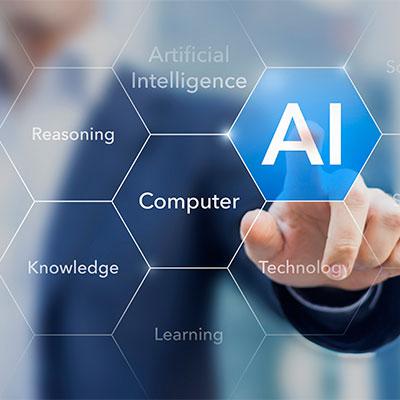Amid Artificial Intelligence Boom, Do Solution Providers Need Data Science Skills To Stay Ahead?

Partners looking to take advantage of emerging artificial intelligence technologies should tap into young talent that already possesses the relevant skills, according to vendors with AI expertise.
As machine learning and deep learning platforms become more accessible than ever before, IT industry executives believe gifted graduates will eventually fill the skills gap that exists around data science and smart machines. Jisheng Wang, senior director of data science at Aruba Networks, said he has already seen students use open source neural networks to classify species of birds at a middle school science fair.
"If you're not prioritizing this right now as a partner, be scared if a student in California is able to do things that your company has not even considered today, because it's moving quickly and you've got to be ready for it," IBM channel chief David Wilson said during a recent roundtable discussion organized by CRN.
[Related: Here's Who Made Gartner's 2018 Magic Quadrant For Data Science And Machine Learning]
SAS Chief Data Scientist Wayne Thompson offered a similar perspective. He pointed out the need for two distinct types of data scientists – those that "bleed" analytics and those capable of building products, as well. Top performers can often write code and develop applications, he said.
"I think that that gap and shortage is coming to a quick closure," Thompson said. "The business acumen is the thing that these young adults are learning. They're professionals, and they're really sharp."
Wang agreed. He sees more of an issue around data collection than the lack of talent needed to pluck valuable insights from business data. As an influx of IoT-enabled devices makes more data available, the European Union's new data protection requirements – GDPR – and the continued popularity of on-premise infrastructure are simultaneously limiting accessibility, he said. That warrants vendors working more closely with partners around data privacy.
"When you go to anything close to the user privacy, user behavior, or close to security, the data collection is a huge burden for most of the products," Wang said.
Cylance CTO Rahul Kashyap, however, argued that the high demand for data science skills makes developing in-house expertise "a tough challenge." He doesn't see a straightforward way for partners to gain practical knowledge and apply it to solutions delivery. Israel Barak, CISO at Cybereason, thinks the onus falls on vendors to develop technology that partners can easily take to market.
"If we're going to ask our partners to become data scientists, then what are we going ask our end-users to become?" Barak asked. "The reason why we're bringing this technology to market is to help our partners, and ultimately our end-users, to focus on their business needs and on solving business problems."
That's where Wilson sees a significant opportunity for channel partners willing to deliver AI-powered products. Although the world is a long way from seeing "generic AI" that can apply across any industry, he said solution providers can leverage their vertical expertise to teach and improve machine learning algorithms around their personnel and clients.
Mike Hadley, President and CEO of Boston-based managed services provider iCorps Technologies, has already invested in analytics-focused employees and can see his company eventually hiring data scientists. Doing so would allow iCorps to carry out data-driven predictive maintenance, for example, based on historical repair information and built around resolution-focused hardware alerts.
"To be able to leverage technology, especially with how quickly it's evolving, you're going to be left behind if you don't have that type of person," Hadley told CRN. "But right now I don't think it's necessary."
Hadley views data science and machine learning skills as value-adds that could help iCorps deliver services more efficiently and proactively. In the same vein, he thinks vendors that invest in providing data science capabilities to partners will be putting their channel communities ahead of the game.
"Especially some of these smaller (partners) that don't necessarily have a high level of skills," Hadley said. "We're all about digital transformation right now. We have invested heavily in finding the right people to drive that initiative forward. We're close to having those type of people. I could see us hiring a person down the road. I think it would be very helpful to a lot of service providers, no doubt about it."